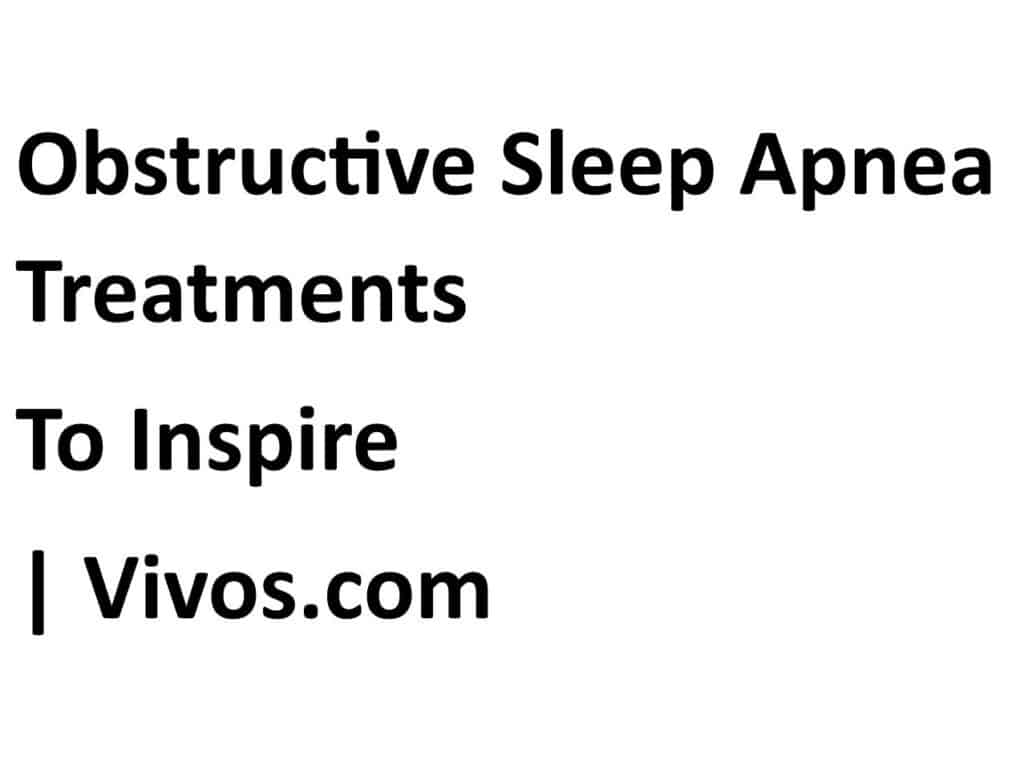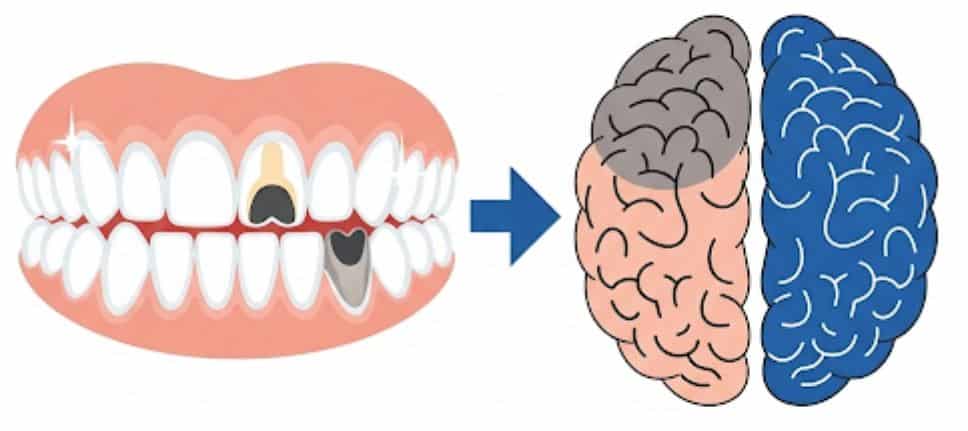
Obstructive Sleep Apnea Treatments To Inspire | Vivos.com
Obstructive sleep apnea or OSA can always make you feel tired, but don’t worry; there are many alternative obstructive sleep apnea treatments to inspire you to sleep better! In this article, we will talk about different treatments for OSA.
These can include changes in your lifestyle, special mouthpieces, and even some exercises! We want to show you that there are many options to try that can make your nights quieter and your days brighter.
Let’s explore these alternative treatments together and find new ways to help you sleep well.
Understanding Obstructive Sleep Apnea
Obstructive sleep apnea, or OSA, is a common sleep problem. It makes you stop breathing for short times during sleep. This happens because the air path in your throat closes up.
Common Symptoms And Long-Term Health Risks Of OSA
OSA is a serious condition that affects your breathing while you sleep. When you or someone you know snores loudly or feels tired even after a full night’s sleep, OSA might be the reason. Here’s what you need to know:
Common Symptoms:
- Loud snoring
- Gasping for air during sleep
- Waking up with a dry mouth
- Morning headaches
- Trouble staying asleep
- Excessive daytime sleepiness
Long-Term Health Risks:
- High blood pressure
- Heart problems, including heart attacks and heart failure
- Type 2 diabetes
- Metabolic syndrome
- Complications with medications and surgery
- Liver problems
- Sleep-deprived partners
Diagnostic Methods Of OSA And Why Treatment Is Necessary
Understanding and treating OSA is crucial. It maintains health and well-being. Here’s a detailed look at the diagnostic methods for OSA and the importance of its treatment:
Diagnostic Methods For OSA:
- In-Lab Sleep Study (Polysomnography): This test involves an overnight stay at a sleep center. They will monitor various bodily functions while you sleep. Technicians record your brain waves. They also record your blood oxygen, heart rate, and breathing. They also record eye and leg movements. This test shows how you breathe while you sleep. It can help diagnose OSA.
- Home Sleep Tests: These tests offer a more convenient diagnosis of OSA. You can take these portable devices home to use in your bed. They usually measure your heart rate, blood oxygen level, airflow, and breathing patterns. The home sleep tests should be more detailed than the in-lab sleep study. But they still provide valuable information. This information can help diagnose OSA, especially in easy cases.
Why Is Treatment Necessary?
Treating OSA is not just about better sleep. It’s about protecting your health. Here’s why treatment is vital:
- Improved Sleep Quality: Treatment can greatly cut or end breathing interruptions with OSA. This leads to better, more restorative sleep.
- Enhanced Daytime Functioning: Treatment can reduce symptoms like daytime sleepiness. It can improve your concentration, mood, and quality of life.
- Reduced Health Risks: OSA is linked to many serious health conditions. These include high blood pressure, heart disease, stroke, and diabetes. By treating OSA, you can reduce your risk for these conditions.
- Prevent Accidents: Untreated OSA increases the risk of accidents. This is especially true while driving due to daytime sleepiness. Treatment can help keep you and others safe.
- Better Mental Health: Treating OSA can improve mental health. OSA causes sleep disruption, which can lead to depression and anxiety.
Limitations Of Traditional Treatments For OSA
Traditional treatments for OSA have been around for a while and have helped many people. However, they’re not perfect and come with their own set of challenges. Let’s talk about the limitations of traditional treatments.
Challenges With CPAP Machines
CPAP machines are a common OSA treatment. They face several challenges that affect their use:
- Comfort and Fit: Users often struggle with finding the right fit for their CPAP masks. Discomfort and irritation can result, making it hard to use the machine every night.
- Noise: These machines are designed to be quiet. But, the noise they make can still disturb sleep. It affects both the user and their partner.
- Maintenance and Cleanliness: You must often clean the mask, hose, and machine. This stops bacteria from building up. It can take a lot of time.
- Dryness: The airflow from the machines can cause dryness in the nose, mouth, and throat, leading to discomfort.
- CPAP Recalling Issue: A major concern has been recalling certain CPAP models due to safety issues. The foam is used for sound dampening in some machines. It was found to break down. It could release harmful particles that users could breathe in. This has led to significant worry among users about the safety of their devices. The recall creates a health risk. It also disrupts treatment for many people. They rely on these machines for a good night’s sleep.
Surgical Options And Their Risks
Surgery can be an alternative for those who can’t tolerate CPAP, but it’s not without its problems:
- Not Suitable for Everyone: Surgery is not a one-size-fits-all solution and may not address all types of OSA.
- Postoperative Complications: Patients can experience infections, bleeding, or other surgery-related issues.
- Effectiveness: Surgery may not fully fix OSA. Some may still need oral medical devices or PAP machines afterward.
The Importance Of Exploring Alternative Treatments
Given the limitations of CPAP and surgical options, exploring alternative treatments is vital:
- Non-CPAP Solutions: Non-CPAP solutions are oral appliances or positional therapy. They might offer relief with fewer side effects.
- Lifestyle Changes: Lifestyle changes can greatly reduce OSA severity. These include weight loss, quitting smoking, and changing sleep positions.
- Emerging Treatments: Research is ongoing. New treatments are being developed. They could offer better and more comfortable solutions.
Lifestyle Changes And Behavioral Approaches To OSA
Changing your daily life can greatly help with OSA. Let’s talk about how changing habits and doing different things can make a big difference at night.
Weight Loss Strategies And Their Effectiveness In Reducing OSA Events
Being overweight can worsen OSA because extra weight can press down on your breathing passages.
Losing weight can help open up these airways, making breathing easier at night. Eating healthy foods and doing activities you enjoy, like walking or playing sports, can help you lose weight and reduce OSA problems.
Positional Therapy: Sleeping On The Side To Prevent Airway Blockage
Changing how you sleep can help. When you sleep on your back, your tongue and other mouth parts block your airway.
This makes it hard to breathe. Sleeping on your side can help keep the airway open. Special pillows or shirts with tennis balls sewn into the back can stop you from rolling onto your back while you sleep.
The Role Of Exercise In Improving OSA Symptoms
Exercise plays a big part in handling OSA. It’s not just about losing weight. Regular exercise can help you in many ways:
- Stronger Heart and Lungs: Exercise makes your heart and lungs work better. This is good because OSA can make heart problems worse. When your heart and lungs are healthy, your body gets more oxygen. This can help reduce the number of times your breathing stops when you sleep.
- Better Sleep Quality: Moving your body can help you sleep better at night. Exercise can make you fall asleep faster and stay asleep. Good sleep helps your body and mind stay healthy.
- Increased Energy and Less Daytime Sleepiness: When you exercise, you feel more awake during the day. Many people with OSA feel very tired when they should be awake. Exercise can help fix that.
- Stronger Throat Muscles: Certain exercises can strengthen your throat muscles. Strong muscles keep your airway open while you sleep. This means less snoring and better breathing at night.
Dietary Adjustments And Herbal Remedies For OSA
Changing what you eat and trying certain herbs can help with OSA. Let’s discover how these changes can lead to better sleep and fewer OSA symptoms.
Impact Of Diet On OSA
What you eat affects how well you sleep. Foods high in sugar and fat can make OSA worse. They can make you gain weight; extra weight increases the problems. Eating healthy foods helps keep your airway open while you sleep.
Foods And Nutrients That May Improve Sleep Quality And Reduce Symptoms
Eating more fruits, vegetables, and lean proteins can help you sleep. Foods like fish, nuts, and leafy greens are good for you. They can help reduce inflammation and keep your airways open.
Drinking plenty of water helps, too. Try to avoid big meals, caffeine, and alcohol before bedtime, as they can make sleeping harder.
Herbal Remedies And Supplements: Scientific Evidence And Recommendations
Some herbs and supplements can help with OSA. For example, peppermint can reduce swelling in your airways. Lavender and chamomile can help you relax and sleep better.
However, it’s important to talk to a doctor before trying these. Not all herbs and supplements are safe for everyone. Plus, they should only replace your current treatments with a doctor’s OK.
Breathing Techniques And Physical Therapy
You can try some cool breathing techniques and physical therapy to help you sleep better.
The Benefits Of Pranayama And Other Breathing Exercises
Pranayama is a special breathing exercise that comes from yoga. It helps you control your breath and can make your lungs stronger. These breathing exercises can help you relax and make sleeping easier. It’s like giving your body a calm-down signal.
Physical Therapy Options To Strengthen Airway Muscles
Physical therapy isn’t just for sore muscles or injuries; it can also help with OSA. Some exercises can make the muscles around your throat stronger.
When these muscles are strong, they keep your airway open while you sleep. This means no more waking up constantly because you can’t breathe.
The Role Of Myofunctional Therapy In Treating OSA
Myofunctional therapy is a fancy name for exercises that help your tongue and mouth muscles. These exercises can be really helpful for people with OSA.
They teach you to keep your tongue in the right place so your airway stays open at night. It’s like training your mouth muscles to help you sleep better.
Oral Appliances And Dental Solutions
For people with OSA, mouthpieces or dental devices can greatly help. These tools fit in your mouth and help keep your airway open while you sleep. Let’s talk about how they work.
An Overview Of Dental Devices And How They Work
Dental devices fit in your mouth like a sports mouth guard or an orthodontic retainer. They either push your lower jaw forward or hold your tongue in place.
This helps keep your airway open, making it easier for you to breathe at night. This means no more snoring and better sleep!
How To Get Fitted For An Oral Appliance And What To Expect
See a Specialist: You’ll visit a dentist who knows about sleep apnea. They will check your mouth and talk about the best device for you.
- Getting Fitted: The dentist will make a mold of your teeth. This mold is used to create a device that fits your mouth perfectly.
- Follow-Up Visits: You’ll see your dentist again to check how the device fits and make adjustments.
- What to Expect: Initially, you may feel slight discomfort or notice changes in your bite. These feelings often go away as you get used to the device.
Technology And Wearable Devices
Today, technology helps us in many ways, including fighting OSA. Let’s talk about how these cool tools can make a big difference.
Innovative Gadgets And Apps
Some gadgets and apps can track your sleep. They can tell you how well you sleep and how often you stop breathing. Some apps also give tips on sleeping better and can even play soothing sounds to help you breathe easier and fall asleep faster.
The Role Of Positional Therapy Devices
Positional therapy devices are special tools that help you sleep in a position that keeps your airway open. For some people, sleeping on their back makes OSA worse.
These devices can gently remind you to sleep on your side without waking you up. They can be as simple as a special pillow or a small gadget that vibrates if you roll onto your back.
Wearable Technology
Wearable technology, like smartwatches and fitness bands, can also help with OSA. They can monitor your heart rate and how much you move during sleep.
Some can even track your oxygen levels. By understanding your sleep patterns, you can make changes to improve your sleep and reduce OSA symptoms. These devices are great because they let you see what’s happening with your body while you sleep.
Psychological And Supportive Therapies
Sometimes, how we think and feel affects how well we sleep. And when we don’t sleep well, it can make us feel worse. But there are ways to break this cycle and feel better.
The Impact Of Mental Health On OSA And Vice Versa
Our minds and sleep are closely linked. When we feel stressed or sad, we find sleeping hard. And when we can’t sleep well, we feel even more stressed or sad. Understanding this link can help us find better ways to sleep and feel happier.
Support Groups And Community Resources For Coping And Management
You’re not alone! Many people face sleep problems like OSA. Joining a support group can help you feel understood and share tips.
Also, community resources like workshops or online forums can offer advice and support. Sharing and learning from others can make managing OSA easier and less scary.
Conclusion
There are many paths to take if OSA troubles your nights. You don’t have to stick with just a machine. Changes in how you live, mouthpieces made just for you, and simple exercises can all make a big difference.
We’ve examined these options to show you that a good night’s sleep is possible. Everyone deserves to rest well and feel great every day.
By trying these alternative treatments, you can find the best way to sleep soundly and wake up refreshed, ready to enjoy your day to the fullest.
How Dr. Jung Can Help
Your sleep & airway focused dentist in Mansfield is an excellent starting point for addressing sleep concerns because we are skilled in recognizing the signs of this condition, especially those related to oral and facial development. Dr. Jung can identify the dental impacts of sleep apnea. Our familiarity with your oral health history makes us well-positioned to detect and address these issues. Dr. Jung has also undergone specialized further education and training to address sleep apnea, making her an expert in these areas. Here are some of our specialized services:
- Collaborative Care: We collaborate with other healthcare professionals for holistic care, addressing any related respiratory or sleep issues.
- Laser Therapy: The advanced laser can be used in various ways to help treat sleep disorders. This is done by tightening areas in the mouth that could limit airflow, which causes snoring. This is a painless procedure.
- Oral Appliance Therapy: Most of our patients benefit a great deal from sleeping with a special mouthguard that encourages proper jaw alignment and nasal breathing. Learn more about oral appliance therapy here.


